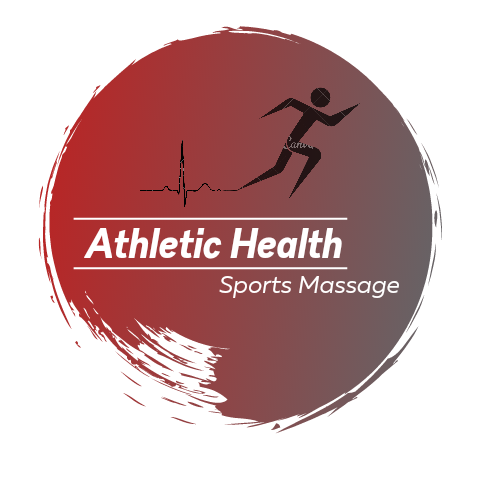How's your recovery plan looking?
- Pieter Kemp

- Nov 1, 2022
- 4 min read
We all want the benefits that come with a healthy lifestyle. Some of us might be working towards our beach bodies, seeing that December is around the corner.
However, today I want to address the topic of a recovery plan. We tend to put a lot of time and work into our training plans, working them out and sticking to them, but how is your recovery plan looking?
Let's not be around the bush now; most of us don't even consider or think of a recovery plan, let alone have one and stick to it.
Your recovery is just as, if not more important than, your training program. Maintaining a high level of training when your body no longer wants to do those extra push-ups or that extra 5km can be challenging.
Eating healthy food and getting a good night's rest is the best way for your muscles to recover, despite what you've read in that fitness magazine on how to recover like a champion🏆.
Like with exercise, no recovery method can replace poor nutrition or a lack of rest.
In this article, we'll give you some tips on improving your overall quality of recovery. These tips are divided into five categories and aim to give you ideas for enhancing your recovery.
Foods
Protein pre-workout
Consuming protein before your workout may help increase muscle protein synthesis.
Protein post-workout
The proteins that make up your muscle fibres become damaged when you exercise. Consuming protein within 30 minutes after your workout gives your body the raw material needed to repair muscle damage.
Studies suggest that an estimated 0,5g/kg of body weight is sufficient for muscle growth.
Carbohydrates post-workout
Carbohydrates are stored in your muscles in the form of glycogen for energy. Glycogen is the primary form of energy for the body, especially when doing short-duration exercises.
Suppose you must rapidly restore glycogen levels when performing back-to-back workouts. Foods such as potatoes, white rice, and sugar are three examples of carbs that restore glycogen levels needed for exercise.
Eat an overall balanced diet.
An overall healthy diet can ensure you don't develop any nutrient deficiencies, which may impair your muscles' ability to recover.
As a general rule, this means:
minimizing or eliminating your consumption of ultra-processed foods
including a lot of vegetables and fruits
Tumeric
Research has found that Tumeric doesn't fall short regarding muscle recovery properties when included in your diet.
Tumeric contains curcumin, which may improve diabetes, weight loss, and blood pressure. In addition, studies in recent years suggest that curcumin has many anti-inflammatory properties. This property makes it an unsuspecting ally in encouraging muscle recovery.
Drinks
Stay Hydrated
Dehydration can wreck your muscles' ability to repair themselves. Exercising in hot or humid weather can make you especially prone to becoming dehydrated.
Studies suggest that men need an average of 3 litres of water daily. In comparison, women need an average of 2 litres of water daily to ensure optimal bodily function.
Supplements
Creatine Monohydrate
Creatine is one of the most widely studied supplements. Research shows that our bodies create creatine in small amounts. Therefore, supplementing it can help improve muscular strength when combined with resistance training.
Research has found that creatine may help athletes recover from intense training by helping reduce muscle damage and inflammation and replenish your muscles' glycogen stores.
Protein Powder
Protein powder is a convenient and easy way to incorporate more protein into your diet.
Many protein powders contain a complete spectrum of essential amino acids and can be categorized as whey and collagen powders.
Lifestyle
More sleep
Sleeping releases the human growth hormone, Somatotropin, which builds muscle and boosts recovery after exercise. Some professional athletes allegedly sleep 10 hours or more per night, as people with intense exercise routines need even more rest than the average person.
Research has found that sleep deprivation may hinder muscle recovery by impairing the body's inflammation reaction and the production of hormones which aid in muscle growth.
Sports Massage
Many athletes use sports massage to reduce muscle fatigue and soreness.
A 2020 review of studies found that massage has a small but significant effect on improving flexibility and decreasing delayed onset muscle soreness after exercise.
Compression Garments
Wearing compression socks has become a common theme among athletes over the past several decades as some studies suggest they lower the time needed for muscle recovery.
Further research is still needed on this recovery method.
Things to Avoid
Alcohol
Alcohol consumption is damaging to many aspects of your health.
Research has found that alcohol consumption after cycling impairs your muscles' ability to replenish glycogen from endurance exercises. Alcohol also impairs protein synthesis in your muscles.
Tobacco
Smoking tobacco negatively impacts your musculoskeletal system.
Although there's a limited amount of research on the effects of tobacco on muscle recovery, some evidence suggests smoking is associated with an increased risk of muscular injury.
Smoking tobacco is not only detrimental to lung capacity and function. Still, it is also associated with an increased risk of developing joint disease and fracturing a bone.
So, next time you meet up with your training partner or colleagues, you can be one up by having a proper recovery plan for your training schedule.





Comments